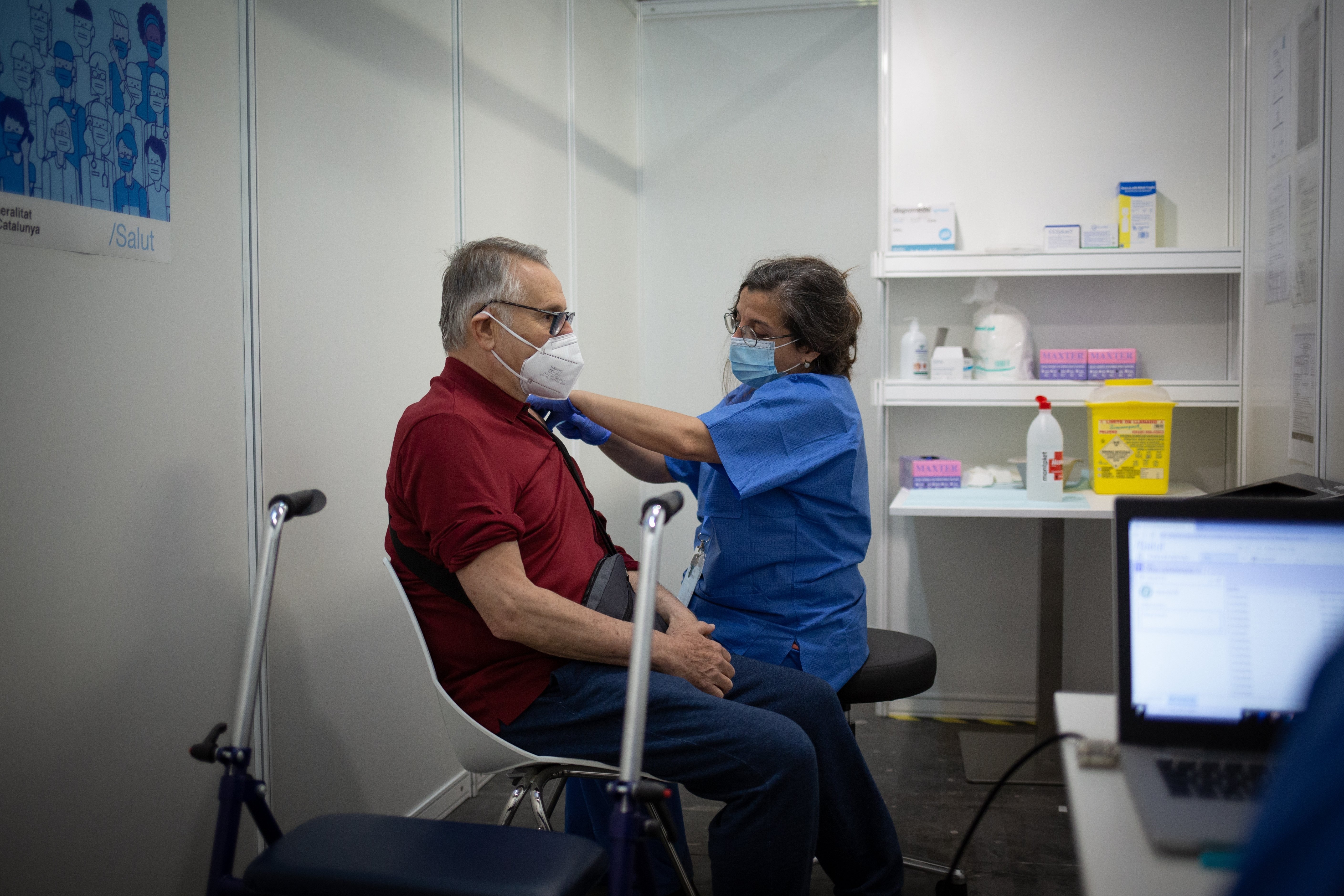The announcement of tough new Covid measures for Catalonia is still pending confirmation or rejection by the court, but meanwhile there are further Covid changes affecting the Catalan public that have been announced in the last few hours. Firstly, the policy of compulsory quarantine for close contacts - announced last week - has been eased slightly to exclude those who are "double jabbed". And secondly, from Wednesday onwards, booster shot bookings are open in Catalonia for everyone aged over 50.
Slight change to the 'close contacts' plan
The Spanish public health committee has announced that people who have had their two vaccination jabs will not have to go into quarantine after being in close contact with a positive case. They will not, then, have to observe a 10-day period of isolation at home. However, it is still recommended that they limit their level of social activity and stay home as much as possible.
The decision, taken by a majority, marks a change of protocol from the rules just announced by the Catalan civil protection committee last week, which stupulated that even those who were fully vaccinated had to stay at home if they were a close contact of a confirmed case. The new measure does, however, state that for ten days they will have to try to limit their activities "to essential ones", reducing "as much as possible" their social interactions.
Boosters bookings begin for the over-50s
As of this Tuesday, Catalonia residents over the age of 55 can now make an appointment for their booster dose of coronavirus vaccine. Vaccine bookings for this group, via the Internet or the La Meva Salut app, are now open. And on Wednesday, the next group down, the 50-to-54 year-olds will be able to do the same. Making an appointment has become essential - in comparison with the situation a few weeks ago when walk-in jabs were possible, almost all vaccination centres in Catalonia now require an appointment.
To be eligible for a third dose, six months must have passed since the last dose of the vaccine if it was Pfizer or Moderna, or three months if it was AstraZeneca. As well, anyone who is vaccinated with AstraZeneca, regardless of age, may already request an appointment to receive a booster dose. As with the rest of the age groups, a messenger RNA vaccine (typically, Pfizer or Moderna) will be employed for this third dose.
Catalan health minister Josep Maria Argimon already announced the opening of the bookings for this group on Monday in an interview on Catalonia's TV3 channel. But he also mentioned that the priority is still the vaccination of those 60 and over, and those vaccinated with AstraZeneca.
Omicron in Catalonia
At the end of last week, the percentage of the omicron variant in Catalonia was already 30% and it is expected that this week or at the latest next week this variant will become the dominant one. With regard to omicron, vaccine effectiveness has been found to vary. Public health secretary Carmen Cabezas stressed on Monday that the AstraZeneca vaccine has little effectiveness against this new variant when two doses are taken. Thus, as she said, a booster is "hyper-necessary in the current context."
The Catalan health authorities are seeking to close the nightlife sector, enforce a curfew from 1am to 6am and limit gathering sizes to 10 people. The intention is for these restrictions to take effect at midnight as Thursday, 23rd becomes Friday, 24th December. The initial validity of the measures will be two weeks, so it would end on another festive day: the the day of the Three Kings, January 6th. Nothing is final because the High Court of Catalonia (TSJC) has yet to rule. However, the current Covid data might be a convincing argument.
Also just ahead is the summit of Spain's autonomous community presidents on Wednesday, with the head of the Spanish executive, Pedro Sanchez, planning to chair the meeting and Catalan president Pere Aragonès calling for other communities to adopt measures similar to those of Catalonia.
Main image: A man being vaccinated / Europa Press

